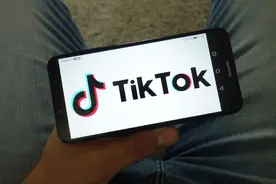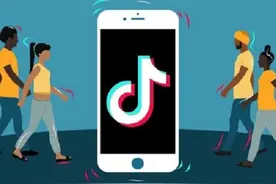In the past 10 years or more, e-books have constantly impacted the traditional publishing industry.The American book publishing industry has a deep feud with Amazon, Google, Apple, Facebook and other technology giants.Among them, Amazon, the largest e-commerce platform in the United States, is regarded as the number one old enemy by insiders because it holds 70% of the e-book market share.In the digital wave, the pressure on publishers to make profits is growing.However, compared with sharply criticizing Amazon as "an evil force in the literary world", the American book publishing industry has shown unprecedented friendliness and enthusiasm towards another technology company, TikTok.In 2020, a user community related to books, BookTok, was born on TikTok.In this community, readers, authors and booksellers gather to recommend favorite books, collect classic books, and build a warm book corner on the Internet to embrace every book lover.Up to now, relevant videos on BookTok have been played more than 63 billion times.Many foreign media and authoritative magazines in the publishing industry, such as the New York Times, the Financial Times, the Guardian and the Publisher's Weekly, said in their commentaries that in 2021, BookTok had helped the author sell 20 million books, becoming a "magic tool for selling books" recognized by readers and people in the book publishing industry."TikTok has changed from a new thing in the book industry to a real market pillar," concluded Christine McLean, executive director of business development of NPD Books, an American publishing statistics agency.Amazon strongly promoted electronic reading, and "predatory" pricing was resisted in Europe and America.Book publishing is an ancient industry, whose history can be traced back to the 15th century when Johannes Gutenberg, a German businessman, invented printing.After centuries of operation, the publishing industry has formed a set of effective "cross subsidy" models: that is, use the profits of best-selling books to subsidize serious works or book categories that require a large amount of early investment.Although electronic reading has become popular since the beginning of this century, selling physical books is still the pillar of the publishing industry.According to the data of the American Publishers Association, in 2021, physical book sales will bring 76% of the sales revenue to publishers.However, the electronic reading pushed by Amazon broke this operation rule and threatened the job of the publishing industry.Lina Khan, chairman of the Federal Trade Commission of the United States, once criticized that Amazon had made the publishing industry "in crisis", mainly because Amazon sold e-books at a loss and encouraged consumers to buy its Kindle e-book reader.By entering the market at a low price, Amazon gradually controlled about 70% of the share of e-books, which enabled it to force publishers to accept its terms, thus destroying their long-term business model of subsidizing the creation of various books.In the face of Amazon's encirclement and suppression, the American book publishing industry has repeatedly resisted: hundreds of well-known writers published signed letters condemning Amazon for harming the rights and interests of authors and publishers; Large chain booksellers and small independent bookstores jointly announced that they refused to sell books published by Amazon in their stores; Several top publishers launched a class action lawsuit against Amazon's audio books for copyright infringement...In 2014, more than 900 authors“
-
Home
-
Product
SolutionsmanagementUnified management of multiple mobile phones and accounts
Marketing automationUse scripts instead of manual automation to run APP applications
Self-developed scriptJavascript can be used to develop all mobile terminal automation operations
SolutionsData monitoringMulti-dimensional monitoring account and peer online red data
analysis reportMulti-dimensional analysis report of data
-
About






Comment Cancel reply